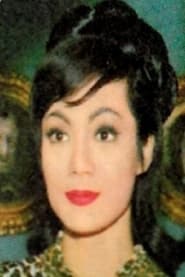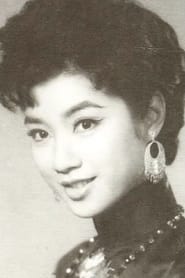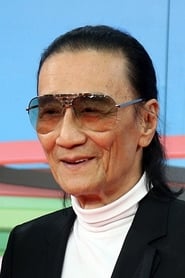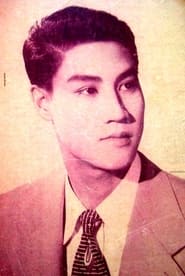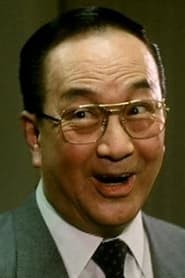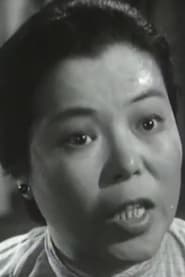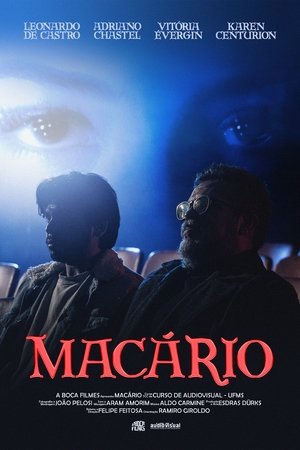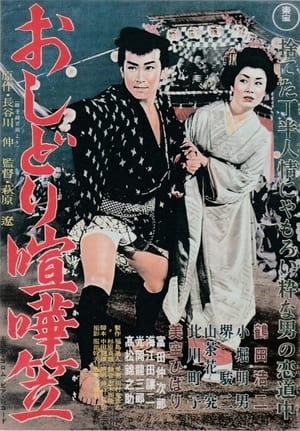
The Natural Son(1959)
Chor Yuen started his directorial career with a bang. From its very first image, The Natural Son establishes Chor as a filmmaker of stylistic flourish, which would be sustained in various forms throughout his long tenure. Adapted from '30 cents' pulp fiction, it is a Kong Ngee melodrama made in the studio's mould, with Westernised characters and trendy middle-class lifestyles. Yet, Chor's first film is not exempt from the social urgency that characterises the Cantonese cinema of his father, Cheung Wood-yau. The film cloaks its entertainment in a moral deliberation on blood ties, its story about the raising of a bastard child a head-on challenge of archaic family values. An ostentatious start for a colourful and eventful career.
Movie: The Natural Son
Top 9 Billed Cast
Fong's father
Mok's father
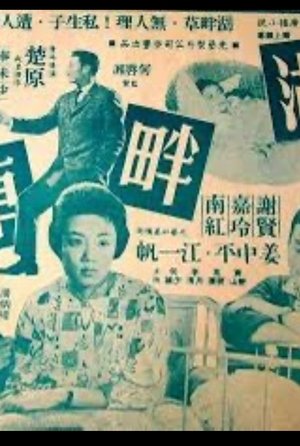
湖畔草
HomePage
Overview
Chor Yuen started his directorial career with a bang. From its very first image, The Natural Son establishes Chor as a filmmaker of stylistic flourish, which would be sustained in various forms throughout his long tenure. Adapted from '30 cents' pulp fiction, it is a Kong Ngee melodrama made in the studio's mould, with Westernised characters and trendy middle-class lifestyles. Yet, Chor's first film is not exempt from the social urgency that characterises the Cantonese cinema of his father, Cheung Wood-yau. The film cloaks its entertainment in a moral deliberation on blood ties, its story about the raising of a bastard child a head-on challenge of archaic family values. An ostentatious start for a colourful and eventful career.
Release Date
1959-03-11
Average
0
Rating:
0.0 startsTagline
Genres
Languages:
广州话 / 廣州話Keywords
Similar Movies
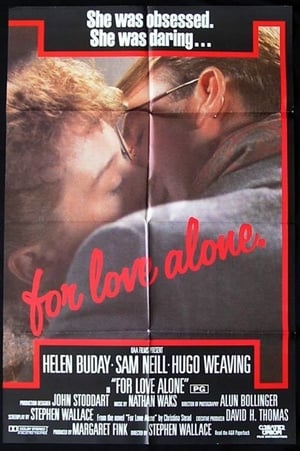 3.4
3.4For Love Alone(en)
Teresa is a spirited young girl chafing under the oppressive attitudes of 1930s society, and her father in particular. She fancies her poverty-stricken Latin tutor Johnathan Crow, without realising he merely considers her a pleasant diversion and nothing more, and eventually follows him from Sydney to London. En route she meets the gentle banker James Quick. Whilst navigating her relationships in London, including with a political poet bound for the Spanish Civil War, she experiences a transformation in her understanding of love. Based upon Christina Stead's best-selling Australian novel.
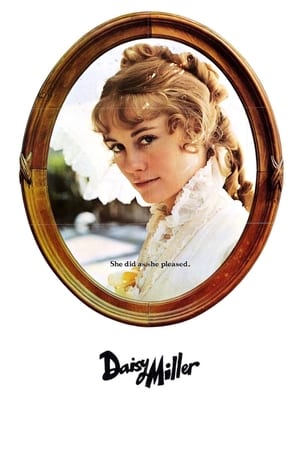 6.0
6.0Daisy Miller(en)
Despite mixed emotions, Frederick Winterbourne tries to figure out the bright and bubbly Daisy Miller, only to be helped and hindered by false judgments from their fellow friends.
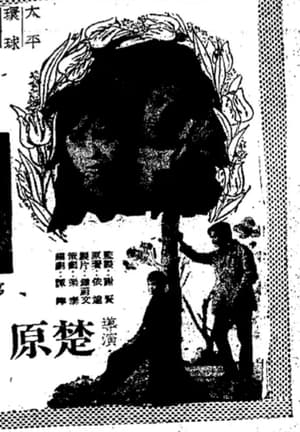 0.0
0.0Winter Love(cn)
Inside a café, on Christmas Eve. Chim Kei meets an enigmatic woman named Mimi Wong who introduces herself as the daughter of an upper-crust family. But the infatuated writer is struck by a spasm of sorrow when he later sees Mimi make her appearance as a taxi-dancer at a party. The lovers are reconciled by the story of her plight told by her sister Annie. However, Mimi goes missing on the engagement day. By a stroke of luck, Chim runs into the elusive woman again and finds out how she was forced into prostitution by her drug-addict husband, his childhood best friend and benefactor Chan Hung-kit. Chim leaves dejectedly, and has since been idling his days away. The frail Mimi confesses her love for Chim on her deathbed, and from not far away, Chan has ended his own life.
Jons und Erdme(de)
Adaptation of Hermann Sudermann's novel about the troubled relationship between the strong willed Erdme and her irascible husband Jons in the Lithunian moors.
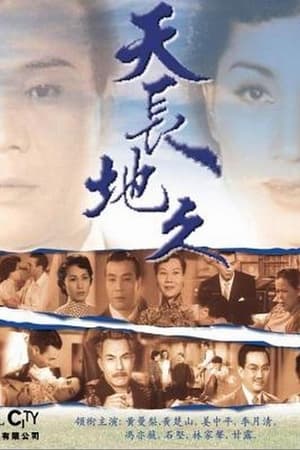 0.0
0.0Eternal Love(cn)
Chan Sai-wah abides by his late father's word and marries the wealthy Yam Suk-kuen. They have a son, Kwok-leung. Though Wah is manager of the hotel owned by his father-in-law, Kuen is not a good wife. For all the years of their marriage, Wah has never been happy. Attracted to the humble and honest Carrie Mui, Wah decides to leave his domineering wife Kuen, but is stopped by his father-in-law. The lovers set off to Macau for a new start. Their life has become increasingly miserable under the pressure from Yam's family. When Wah leaves to seek help from his son in Hong Kong, Carrie decides she should leave so that Wah can go without feeling any guilt or burden. On the other hand, Wah is too ashamed to face his son, and returns to Macau. He lives his life in misery. Years pass, the lovers meet again. Wah is reduced to begging in the streets while Carrie becomes an opera diva.
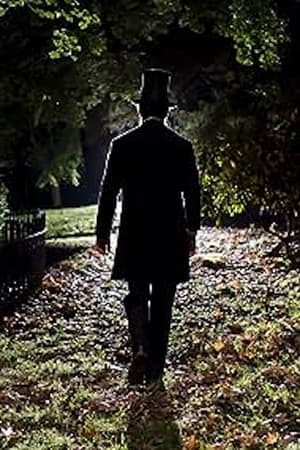 0.0
0.0Lincoln in the Bardo(en)
In 1862, Abraham Lincoln's youngest son is laid to rest. That night, Lincoln visits his son's crypt, a chorus of ghosts narrating their brief reunion. Based on the bestselling novel by acclaimed author George Saunders.
 0.0
0.0Autumn(cn)
Hak-ming heads the Ko Family, but he and his brothers, Hak-ting and Hak-on, and the second wife of the late Master Ko quarrel. Young Cousin Mui, who has tuberculosis, is forced by to marry an older woman. Kok-sun is guilty of being unable to stop the marriage. Sun and maid Chui-wan are wary of their feelings for each other due to class difference. Cousin Mui dies of illness. Hak-ting has his eyes on Wan. His wife, Wong, complains to their daughter, Shuk-ching, who cannot take it and commits suicide. Wong blames herself for her death. Undergone these tragedies, Cousin Kam's mother let Kam have a modern wedding with Kok-man. When Ming is ill, Ting and On want to sell the ancestral home. Hak-ming dies of angst. When the fifth uncle of Sun forces Wan to be his concubine, Wan tries to kill herself but is intercepted by Sun. Pressurised by people of the house over the issue of inheritance, Sun protests by declaring his love for Wan and leaves the family, with his mother, brother Man and Wan.
Trilby(en)
First installment of the Tense Moments with Great Authors series. Presumed lost.
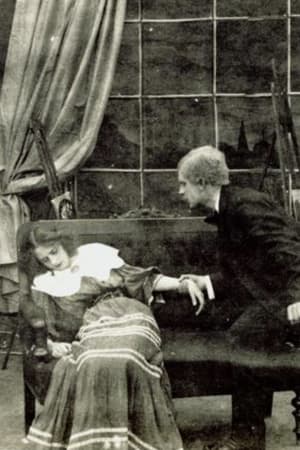 0.0
0.0Trilby(da)
Danish adaptation of Trilby. Presumed lost, though a single still apparently depicting the novel's climax survives.
Trilby and Svengali(en)
British adaptation of Trilby filmed in Kinemacolor. Presumed lost.
The Tormented Beauty(cn)
Guerrilla member Ting Siu-yuen works as a playwright and Lee, the leader of an opera troupe. They conceal their identities in the troupe in order to gather military intelligence. Yuen gradually falls in love with the lead actress Mui Law-heung. Ting is unsettled to learn that County Chief Fong covets Mui. He sneaks into Fong's residence and is astounded by the sight of his old lover Pak Kuen, now Fong's wife. Fong colludes with the military chief in conducting vicious schemes. With Kuen's help, Yuen is able to get the intelligence. But as Heung is not an insider, she reports to the Governor about the illicit relationship between Yuen and Kuen. Kuen backs Yuen to eliminate the conspirators and bring about the union of Yuen and Heung.
Torrents of Spring(cn)
Sojourning in Macau, Su Erning by chance helps Pan Meiniang resuscitate his younger brother and fends off the thug. In her admiration, Pan calls off the engagement arranged by her mother to exchange vows with Su despite having known him for only three days. To raise the money for the wedding, Su plans to sell his family yacht to the rich wife of his classmate Lu Zuhua in Hong Kong and promises to buy Pan a pearl necklace. The promiscuous Mrs Lu seduces Su on the yacht and then dumps him. 18 years later, Pan's daughter is getting married. Su prepares a wedding gift—a stolen pearl necklace—for the bride but is too ashamed to show himself.
Human Relationships(cn)
Lee Sun-fung is renowned for adapting literary classics for the silver screen. To commemorate the seventh anniversary of the Union Film Enterprise known for producing quality films and co-founded by Lee, Human Relationships is adapted from writer Ba Jin's novel into film. The Yiu family moves into a manor. Mrs Yiu, while frustrated by the way her step-son is spoiled by her husband and mother-in-law, develops a friendship with a kid (Michael Lai) who steals flowers from the mansion's garden. She later learns that he is the son of the place's former owner whose downfall at middle age is the result of being spoiled when young. Lai was only a child but gained a foothold among seasoned veterans like Cheung Wood-yau, Ng Cho-fan and Pak Yin.
 5.6
5.6Genesis(bm)
Inspired by the book of Genesis, this film tells the power struggle between two families: a clan of herders led by Jacob and another clan of hunters fronted by his brother Esau. Caught in the crossfire is their cousin, Hamor and his tribe of farmers.
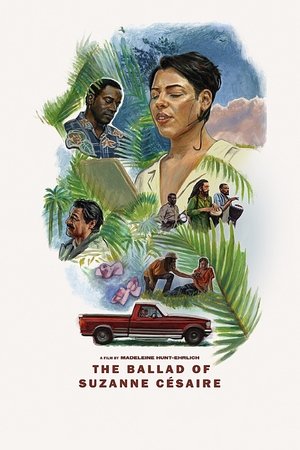 0.0
0.0The Ballad of Suzanne Césaire(en)
An actress, three months post-partum, reads through fragments of the archive of Suzanne Césaire as she prepares to perform excerpts of the writer's work.
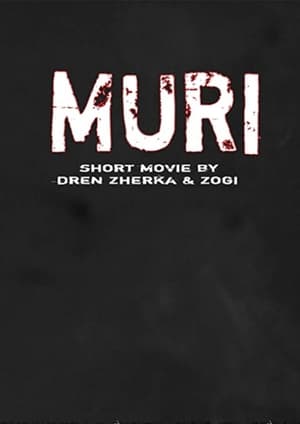 10.0
10.0The Wall(sq)
An adaptation of the J.P. Sartre story "Le Mur". What goes on in his mind and what happens outside when he has left only few more hours left to live. The existential dilemmas of a prisoner condemned to death from a repressive regime for his participation in a resistance movement and his friendship with the leader of this resistance. When all seems lost and he has already given up the most unlikely coincidence changes the course of events and his life.
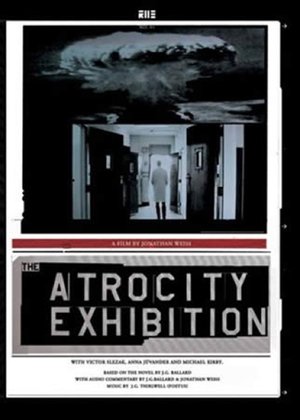 4.4
4.4The Atrocity Exhibition(en)
A doctor in a mental research institution is driven insane by the spectacle of the horrors of the twentieth century.
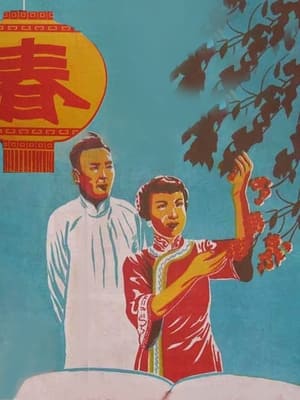 0.0
0.0Spring(cn)
Ko Suk-ying is saddened over her arranged marriage as manipulated by her father Hak-ming. Ko Kok-sun's Cousin Chow Wai's spends the Mid-Autumn Festival before her marriage with the Kos. She has been in love with Sun. Sun finds out about her love for him when she is about to be married off, he is too weak to oppose to Wai's betrothal to another man. Sun's son, Hoi-sun, falls ill. Fearing the displeasure of his elders, Sun dares not consult a western doctor. Meanwhile, another dispute arises among members of the family over the ancestral land. When accused of being incompetent in his management, Sun takes the blame silently. Wai dies of grief while Hoi-sun becomes a victim of mistreatment. Sun is devastated at this double blow. Hak-ming instructs Sun to arrange for Ying's wedding. Knowing the kind of man Ying's fiancee is, Sun is reluctant. Not wanting to follow in Wai's footsteps, Ying fights for her own rights, and backed by an enlightened Sun, she leaves for a new start.
